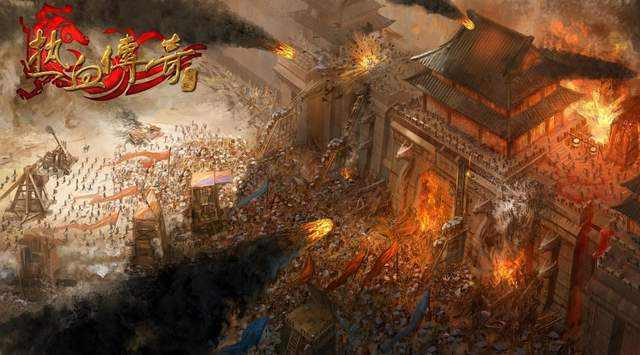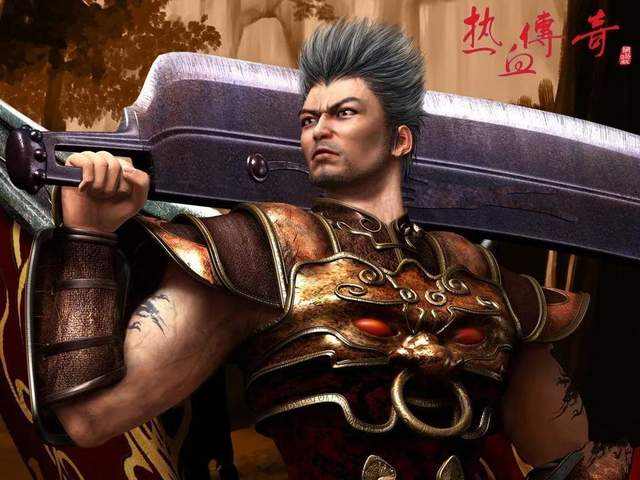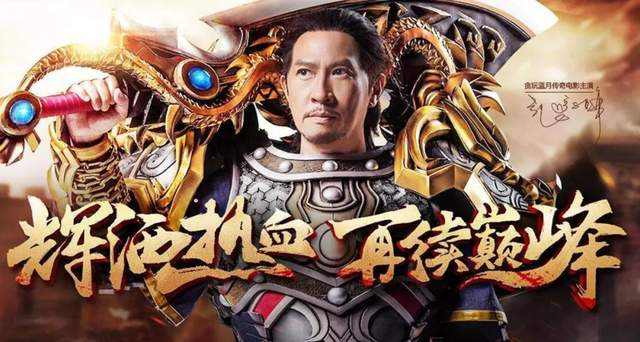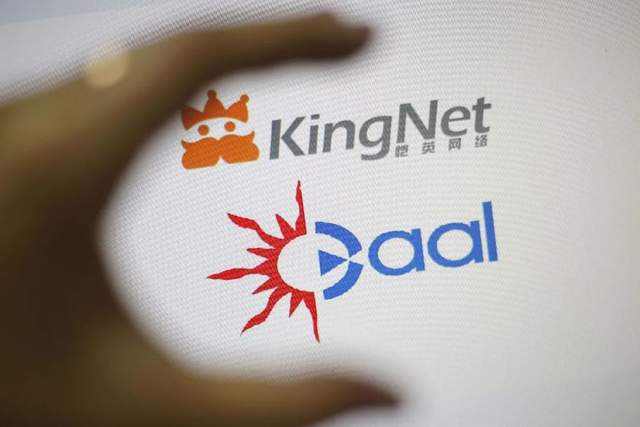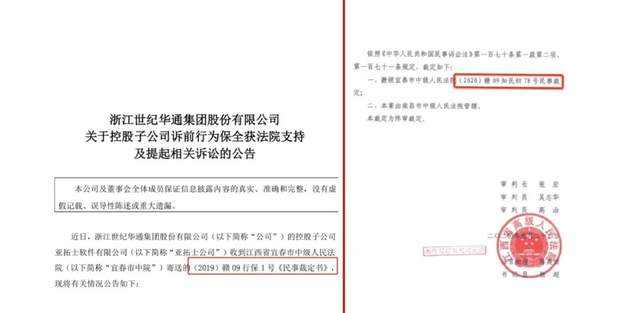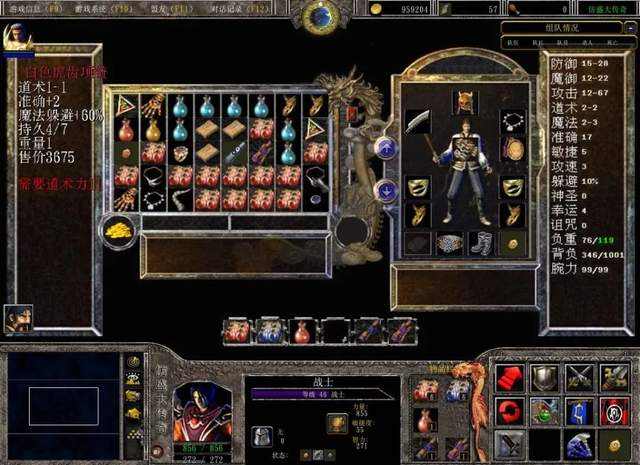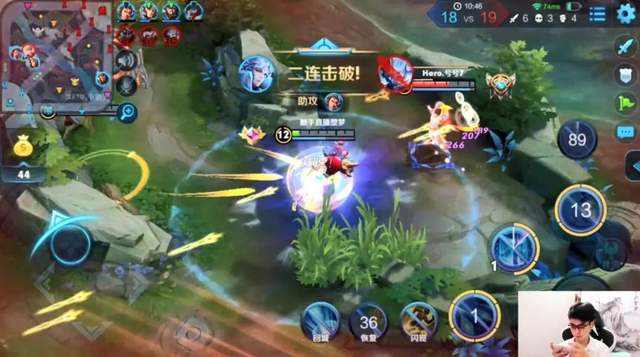Uncover the history of rights protection behind Shengqu.
Editor’s note: This article is from the micro-channel public number “zinc Finance” (ID: xincaijing), Author: Michael Chu.
Text/Mai Ju
Edit/gale
In 2021, the “Legend” IP arena is up again.
On January 8, Yumeide officially issued a statement stating that the so-called “Copyright Authorization Letter” issued by Shengqu Games to Yichun Xinle Technology Co., Ltd. was invalid, and it was suing Yichun Xinle for actual external use under the name of “Legendary World” authorization. The act of authorizing the game “Legend of Warm Blood” violates its legal rights as the copyright owner of the game “Legend of Warm Blood”.
Soon, Xinle Technology officially responded, emphasizing that it obtained the relevant authorization of “Legend World” from Shengqu Games through legal channels, and stated that Shengqu Games enjoys complete, complete, “Legendary World” online games. The independent copyright has the right to legally authorize a third party to adapt mobile games and other game works based on the “Legend World” online game.
Actually, as early as December last year, Shengqu Games and Asahi Play Technology issued two public statements, targeting Korean Yumeide, Legend IP Co., Ltd., Shenzhen Yumeide and other related companies for the “Legend” game IP Authorized acts, and jointly made a solemn statement: immediately start the “net net” operation of the “Legend” IP market in accordance with the law.
Sheng Qu’s attitude is so tough. In 2020, Shengqu received two favorable litigation judgments and two injunctions to protect its own rights and interests, and built the walls of “Legend” IP. The statement made by Yumei De at this time, without the support of a legal basis, is more of a powerless “reduction of respect”.
Rights protection, pitfalls, and judgments, Zinc Finance has resumed the major infringement and rights protection incidents surrounding the “Legend” IP in 2020 and discovered that even though “Legend” has spent 20 years in China, about the “Legend” IP The various stories of “Legend” are still happening, and the rights protection around the “Legend” IP still has not stopped.
Four awards, Shengqu continues to strengthen its copyright fence
The IP of “Legend” has been with Chinese gamers for 20 years, and the debate about the IP of “Legend” has also been disturbing for nearly 20 years. The proliferation of private servers caused by source code leaks, and various illegal authorization activities by Yumei De in the mainland, continue to disrupt the “Legend” IP market.
As the introduction party of this game, Shengqu (formerly Shanda) is also this versionThe longest and hardest runner in the rights protection marathon.
Picture source network
2020 is a crucial year for Shengqu. In this year, Shengqu has adopted two favorable litigation judgments and two pre-litigation actions to protect itself, its subsidiaries, and Atox. The absolute right of “Legend” IP domestic authorization.
In a copyright infringement dispute involving the game screen of the mobile game “Legend World” developed by Shulong Technology, a subsidiary of Shengqu, which infringed the game screen of the “Legend of War”, the Pudong Court held that Shengqu Information enjoyed The copyright of “World” does not impose any restrictions on the presentation methods and terminals of the game screen, and it should be deemed that there is no need to restrict it.
Fang Shengqu Information, the game developer Shaoxing Lexiang Network Technology Co., Ltd., and the game publisher and operator Jiangxi Wanwan Information Technology Co., Ltd. are sued in Yumeide for the copyright adaptation of the mobile game “Long Teng” from the “Legend” IP. In the case of the three infringements on their rights and interests, the People’s Court of Shanghai Pudong New Area still dismissed Yumei De’s claim for “infringement of copyright”, simply thinking that Jiangxi Tanwan had false propaganda in its propaganda process.
The famous “Slag Zhahui” comes from the “Legend” game operated by Jiangxi Wanwan
The significance of these two rulings is to clarify that Shengqu’s “Legend” IP market includes not only the existing game market at the time, but also other game segments that will inevitably appear with technological development. Therefore, it is nonsense that Yumei De has repeatedly proposed that the “Software License Agreement” only permits the adaptation of terminal games and does not include mobile games and web games.
More important than these two rulings is that on March 30, 2020, the Intermediate People’s Court of Yichun City, Jiangxi Province rejected the reconsideration of the pre-litigation injunction by Yumei De. This means that the Yichun City Intermediate People’s Court made on November 13, 2019 about the entertainment company,Legend IP Co., Ltd. immediately ceased to make a ruling involving the authorization of the adaptation rights of the online game “Legend” to any third party in Mainland China to remain valid.
Previously, this ban had choked Entertainment Virtue’s neck. However, Yumeide still did not stop its continued wanton and illegal IP authorization of “Legend” in mainland China despite the rejection of the reply by the Yichun Intermediate Court. They put on the vest of Hong Kong Entertainment Virtue, and Hong Kong Entertainment Virtue signed a licensing agreement with Jinfeng Company in the mainland to try to circumvent the restrictions of the ban.
So, on September 14, 2020, the Intermediate People’s Court of Shangrao City, Jiangxi Province once again issued a pre-litigation certificate, requesting Yumei De, Korea Legend, Hong Kong Yumei, Shenzhen Yumei, and Jinfeng to immediately Stop adapting and authorizing the “Legend” IP in Mainland China.
The two bans are the two toughest shields currently held by Shengqu, and they firmly hold the “Legend” IP, a golden rice bowl with a 20-year history and an annual income of 600 million yuan.
It is difficult to avoid bans, entertainment virtues frequently stage farce
In addition to Shengqu, another partner in this net-net operation is also worthy of attention. Xuwan Technology is a technology company formed by Jiangxi Wanwan and Kaiying Network. The former is an allied comrade who was sued in court with Shengqu; the latter Kaiying Network is a typical victim of the “Legend” IP market.
On September 15, 2020, A-share listed company Kaiying Network issued an announcement that it intends to transfer 70% of Zhejiang Jiuling Network Technology Co., Ltd. equity at a price of RMB 1 yuan, and this 70% of the shares is owned by Kaiying. It was bought two years ago for 1.064 billion yuan. Nowadays, the painful cut is because there have been many major arbitration lawsuits after the acquisition of Zhejiang Jiuling. The amount of compensation on the back has reached 2.29 billion yuan, which completely exceeds the existing net assets.
The experience of Jiuling, Zhejiang is just one aspect of Kaiying Network in this “Legend” disaster. On October 25, 2016, Kaiying Network announced that it had signed a contract with South Korean game company Yumei De to obtain the development and commercial operation authorization of “Legend” mobile games and web games in mainland China for a total of 298 million yuan.
As a result, the Kaiying Network at that time was immediately brought to court by Shengqu, which holds the exclusive copyright in the mainland. Kaiying, who was deceived, stopped cooperating with Entertainment Virtue. As a result, this behavior drew crazy revenge from Yumei De, and Kaiying Network suffered from 2018 to 2019.A large number of malicious lawsuits from entertainment virtues finally led to today’s helplessness.
In fact, there are not a few game companies like Kaiying that are deceived by entertainment virtues and spend money to buy fake licenses. Most of them are small and medium-sized enterprises, and they have no ability to claim rights after being deceived. At present, many criminal cases of contract fraud related to Yumeide have been filed in China and South Korea.
Originally, after the Yichun Intermediate Court’s pre-litigation protection letter was issued at the end of 2019, it can prevent Yumei De from cheating in an authorized manner in the mainland. However, in order to gain the trust of these companies, the German side has continued to release false information, using some well-known legal documents and judgments that have no legal effect in the mainland to guide public opinion, trying to avoid the restrictions of the prohibition.
In June 2020, Yumei Germany announced that it had received an arbitration award from the Arbitration Court of the International Chamber of Commerce (ICC) in Singapore. According to the results of the ruling, Yumeide declared that Shengqu Games’ operations, development and authorization of “Legend” IP in Mainland China seriously violated the copyright of Legend IP Co., Ltd.
About the validity of this arbitration result, Zinc Finance interviewed Zhong Yumeng, a copyright lawyer at a well-known Shenzhen law firm. Attorney Zhong believes that the ICC’s arbitration result is based on the premise that the renewal signed between Lansha and Atos in 2017 is invalid. In fact, as early as 2018, the Shanghai International Arbitration Center, the arbitration institution stipulated in the renewal agreement, dealt with this matter. A ruling was made, and the ruling confirmed that the 2017 renewal agreement was a legal and effective agreement. What’s more, ICC has no jurisdiction over the 2017 renewal agreement, so this ruling is beyond the scope of ICC’s ruling.
Moreover, Attorney Zhong told Zinc Finance: “ICC is a foreign private arbitration institution. If foreign rulings want to take effect in China, the parties concerned need to apply to the people’s court with jurisdiction in China. As far as I know , This ruling has not been recognized and supported by our Chinese courts.”
If we want to recognize that a ruling that is contrary to the conclusions of the domestic judicial department is valid, to a certain extent, it is an infringement of China’s judicial sovereignty and an infringement of the jurisdiction of the Chinese courts.
The entertainment and the German side is also aware of this fact, so in September the copyright agent publicized a ruling, pretending to announce that the Jiangxi Provincial High Court had revoked the existing ruling of the Yichun Intermediate Court. It seems that the ban on the IP of “Legend” has been lifted, but it is actually a fake shot. A closer look reveals that the revocation ruling announced by the agent is (2020) Gan 09 Zhi Min Chu No. 78, and the ban is (2019) Gan 09 Xing Bao No. 1. The two are not the same at all.
On the left is the injunction ruling announced by Shengqu, and on the right is the revocation ruling announced by the entertainment agency
Now, in its statement, Yumeide reiterated the ICC’s arbitration result, but it is the trick of Yumeide to circumvent the ban when it is desperate, and it cannot change the fact that Yumeide has no right to infiltrate the IP market of “Legend” in mainland China. fact.
20 years of “Legend”, a protracted copyright protection battle
So, why does Yumeide know it’s illegal to do so? Because of the money.
“Legend” is the only IP in the game industry that can turn a game into a type of game. At present, the domestic market generated around the “Legend” IP has reached 70 billion yuan per year, and the number of users has reached 600 million. The seemingly simple core mechanisms such as “Daguai Diaobao, PK explosion” still have a large number of recognized players in today’s diverse game market, and they will continue to try new “Legend” games one after another.
“Legend” game interface
For Yumeide, “protecting “Legend” IP” has become its main source of revenue, the main way is to authorize others and litigate compensation. According to public financial data, more than 60% of Yumeide’s revenue comes from “product authorization”, which exceeds 600 million yuan. This revenue scale has exceeded most of the small and medium-sized game companies in China. Kaiying Network, which has suffered a lot from it before, has publicly complained that “a very high amount of compensation in the form of litigation or arbitration is a common pressure method used by Entertainment Virtue and “Legend” IP.”
Benefits are the driving force for them to break the law when they know the law.
In addition, the “Legend” game has experienced source code leaks, and there are countless private servers. The long time span and low cost of infringement have led to numerous infringements. Between 2017 and 2018 alone, more than 3,000 pirated games suspected of infringing “Legend” IP were born on the market, and only a quarter of them were confirmed to be removed after rights protection.
Attorney Zhong told Zinc Finance that another difficulty of “Legend” rights protection is that game infringement is more concealed and the process of obtaining evidence is more difficult. Because all the infringements are done online, and even some pirated games don’t even have the most basic official website, and only rely on chat tools to spread the link privately.
Actually, copyright infringements are not rare in the game field, and even more complex and common due to the increasing variety of game formats. Attorney Zhong stated that there are currently five common types of infringements.
The first is the common game swapping, which is copyright infringement. Industry insiders say that this type of rights protection is the most complicated because of high litigation standards, long trial cycles, and of course high social attention.
The second type of material infringement is the phenomenon of plagiarism in the promotion and design of the game. In most cases, this phenomenon belongs to unfair competition.
The third type is trademark infringement. That is to say, game developers use similar game names when bidding for ranking and promoting applications. As the saying goes, “smooth heat”, this situation will involve trademark infringement. Take “Legend” as an example, many pirated games will carry the word “Legend” to achieve the effect of being fake.
The fourth type is the contract problem arising from the game operation process. For example, some single generation or intermodal contracts will be regarded as computer software license contracts by some courts. The nature of agency contracts and computer software licensing contracts are very different.
The last one is, to some extent, a product of the times, namely, ecological litigation. Specifically related to game live broadcast, game account leasing, game plug-in and other behaviors within the game ecosystem, it may cause problems involving copyright or unfair competition.
Game live image source network
On the 20th anniversary of “Legend”, Shengqu CEO Tang Wenyan said in an open letter: Since the first private server appeared in “Legend” in 2002, we have been defending the rights of “Legend” for several years. It has crossed the three eras of end game, page game and mobile game. The development history of “Legend” IP is almost a history of intellectual property protection and anti-infringement.
This sentence expresses the sadness and tragic of a game content owner in safeguarding his legal rights.
2020 is full of significance for the entire game industry. In the middle of the year, “Black Wukong” used a trailer to amaze the Chinese people. At the end of the year, “2077” was released to the game world. People are expecting China to have game creativity like the latter, and entertainment virtues and thousands of private server operators are postponing this day.
